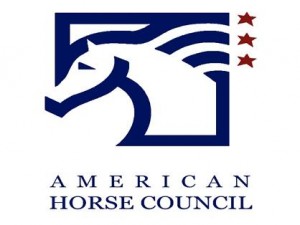American Horse Council’s 2014 Tax Bulletin- Tax Bills Favorable to Horse Industry
By: American Horse Council (via AQHA Publicity)
The American Horse Council’s June 2014 Tax Bulletin is available for download. The June 2014 Tax Bulletin includes a variety of topics – tax bills moving to the House, a tax court dispute and FBAR Enforcement.
Several tax bills favorable to the horse industry are moving in the House.
By Thomas A. Davis, Esq., Davis & Harman LLP of Washington, D.C.
Over the past several weeks, the Ways and Means Committee passed and sent to the House floor three tax bills beneficial to horse owners and breeders, and has a fourth bill under consideration. As discussed below, the bills retroactively restore tax benefits that expired at the end of 2013.
Thoroughbred Owner-Breeder Prevails in Tax Court Dispute Over Passive Losses Under Internal Revenue Code Section 469
By Richard W. Craigo, Law Offices of Richard W. Craigo of Los Angeles, California
As AHC Tax Counsel Thomas “Tad” Davis reported in the last AHC Tax Bulletin, an owner-breeder, for the first time, has prevailed in a “passive loss” decision, handed down by the U.S. Tax Court in April 2014 (Tolin v. Commissioner, T.C. Memo. 2014-65).
As a long-time member of the AHC Tax Bulletin Advisory Board and the attorney of record in Tolin, I have been invited to elaborate on its more significant findings. As Tad Davis noted, this is likely the most significant decision dealing with a horse operation in the three decades, since the “passive loss” rules of Internal Revenue Code Section 469 were enacted. For so-called “passive” activities, the penalties can be harsh, often resulting in total disallowance of all losses derived from the horse operation for many years, at least until the horse operation is completely terminated.
FBAR Enforcement: IRS Pounds the Taxpayer; FATCA Enforcement: IRS Signals Early Stage Flexibility
By B. Paul Husband, Esq., Husband Law Group of Universal City, California
Unlike most countries, the United States taxes the worldwide income of its citizens and other residents, not just income earned within its borders. Two of the most significant Internal Revenue Service Programs in assuring that the U.S. Government has sufficient information to effectively tax foreign income are the Report of Foreign Bank and Financial Accounts, which is commonly called the FBAR, and the Foreign Account Tax Compliance Act commonly known as FATCA.
AHC’s Tax Bulletin is Sponsored by Zoetis
The American Horse Council keeps you up to date with electronic the Tax Bulletin that reports on Congressional action and other important issues affecting the industry. The Tax Bulletin is a member benefit, and thus, is not intended for reproduction. For more information on federal legislation, equine health and regulatory issues, taxes, animal welfare, racing, recreation, and showing please visit our website at www.horsecouncil.org
For more information on the American Horse Council or to view the 2014 June Tax Bulletin, visit www.horsecouncil.org.











